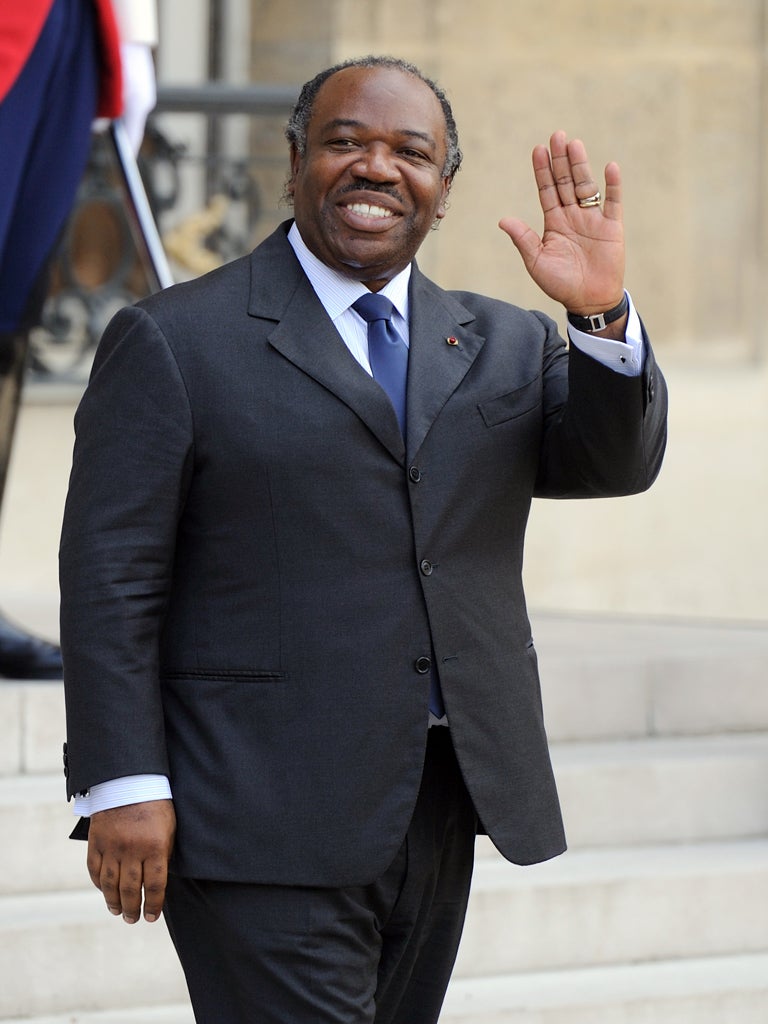Bongo and Bell Pottinger can't stir voters in Gabon
Rebranding effort abroad – but elections leave country unmoved

Your support helps us to tell the story
From reproductive rights to climate change to Big Tech, The Independent is on the ground when the story is developing. Whether it's investigating the financials of Elon Musk's pro-Trump PAC or producing our latest documentary, 'The A Word', which shines a light on the American women fighting for reproductive rights, we know how important it is to parse out the facts from the messaging.
At such a critical moment in US history, we need reporters on the ground. Your donation allows us to keep sending journalists to speak to both sides of the story.
The Independent is trusted by Americans across the entire political spectrum. And unlike many other quality news outlets, we choose not to lock Americans out of our reporting and analysis with paywalls. We believe quality journalism should be available to everyone, paid for by those who can afford it.
Your support makes all the difference.The oil-rich West African country of Gabon has been on a push to rebrand itself, bringing in an international public relations firm to spin its image. But the jaded folk at home, who have seen only two leaders since independence in 1960, don't appear to be buying the line, and are expected to stay away from the polls in today's parliamentary election.
Today's poll marks the first time the Gabonese electorate has been called to vote since the controversial election in 2009 of President Ali Bongo, pictured, whose late father, Omar, ruled the country for the preceding 42 years.
It comes after the government hired the British lobbying firm Bell Pottinger to rebrand Gabon as a vanguard for the protection of rainforests.
Paul-Simon Handy, an analyst at the South African Institute for Security Studies, said the apathy surrounding today's election to the National Assembly is as much a fault of the opposition as of the government. "The opposition's credibility problem dates back to Omar Bongo who used the country's oil wealth to co-opt anyone who could be perceived as a threat. Historically, the opposition has been made up of his aggrieved former ministers."
One of them, the former Interior Minister André Mba Obame, said in an interview with the Africa 24 channel yesterday: "Saturday, everyone stay at home".
The other main players in the opposition, as well as the civil society group Ça Suffit! (Enough), have also called for a boycott, after losing a court bid to have the elections delayed until next year to allow for a biometric voter registration system to be introduced.
Gabon, which has a population of just 1.5 million people, discovered offshore oil in the early 1970 but unequal wealth distribution and high unemployment mean 33 per cent of the population remain below the poverty line.
President Omar Bongo was for decades at the centre of "la Françafrique", the shady network run from the Elysée Palace in Paris that aimed to secure a politically conducive business environment for French corporations, such as the oil companies Elf and Total. He did business with South Africa's apartheid regime and allegedly spent million of dollars supporting the election campaigns of successive French presidents.
Amid the decline of French covert influence in Africa, Gabon has sought to rebrand itself. In 2003, President Omar Bongo, in consort with the President of neighbouring Congo-Brazzaville, Denis Sassou Nguesso, launched efforts to establish sustainable forestry. For Gabon's part, the move is tied to a strong marketing campaign which included a presentation at the recent climate conference in Durban.
A South African military hardware dealer, Ivor Ichikowitz, says he is currently creating an upmarket eco-lodge in Gabon. Bell Pottinger account executives have recently been approaching journalists as part of their efforts to promote the nascent Gabon Oil Company, created after the World Bank pressed the Bongo family to de-nationalise assets.
Mr Handy said: "Omar Bongo was mainly interested in conservation but his son has understood the potential of using the environment to create jobs and to raise the profile of the country."
Join our commenting forum
Join thought-provoking conversations, follow other Independent readers and see their replies
Comments